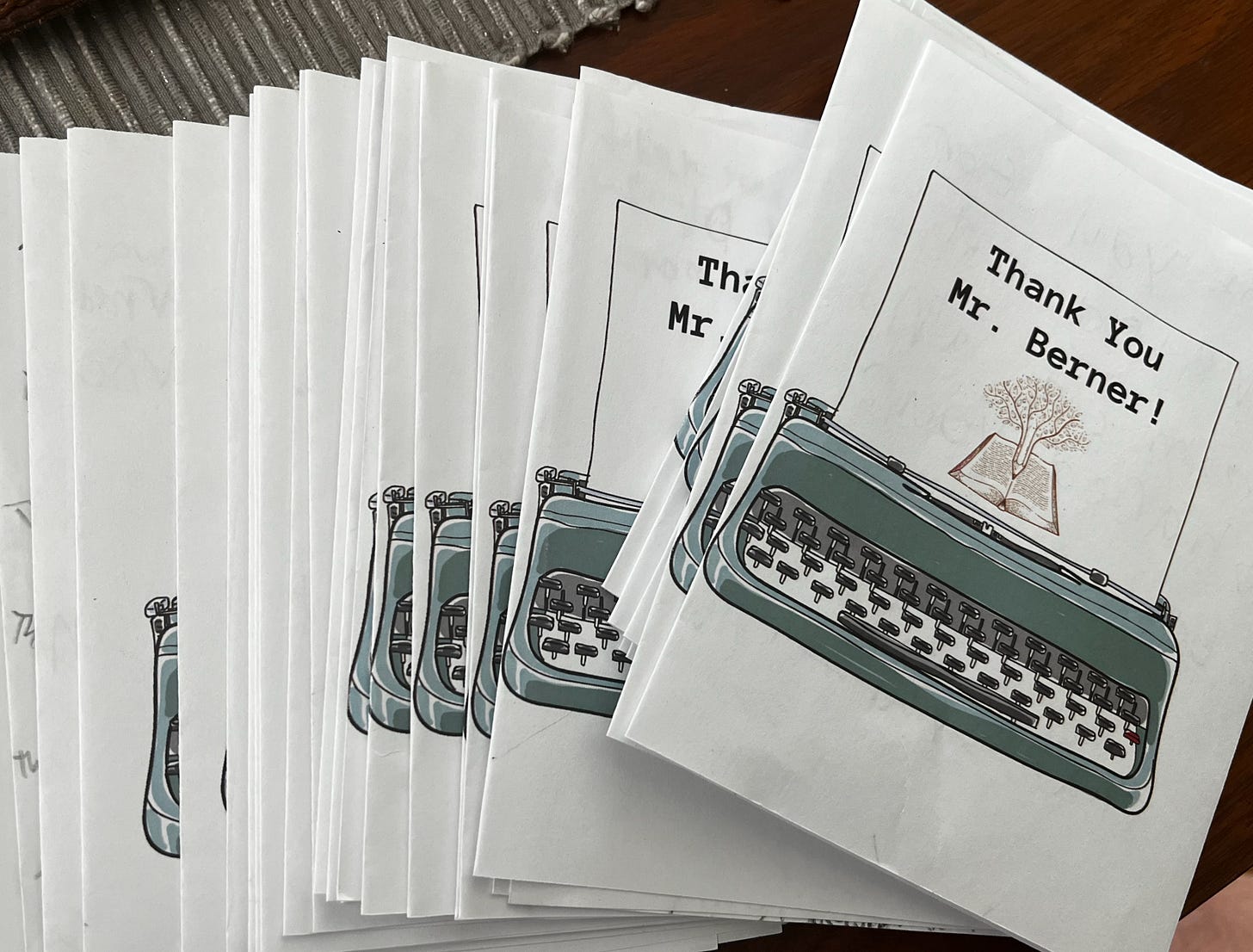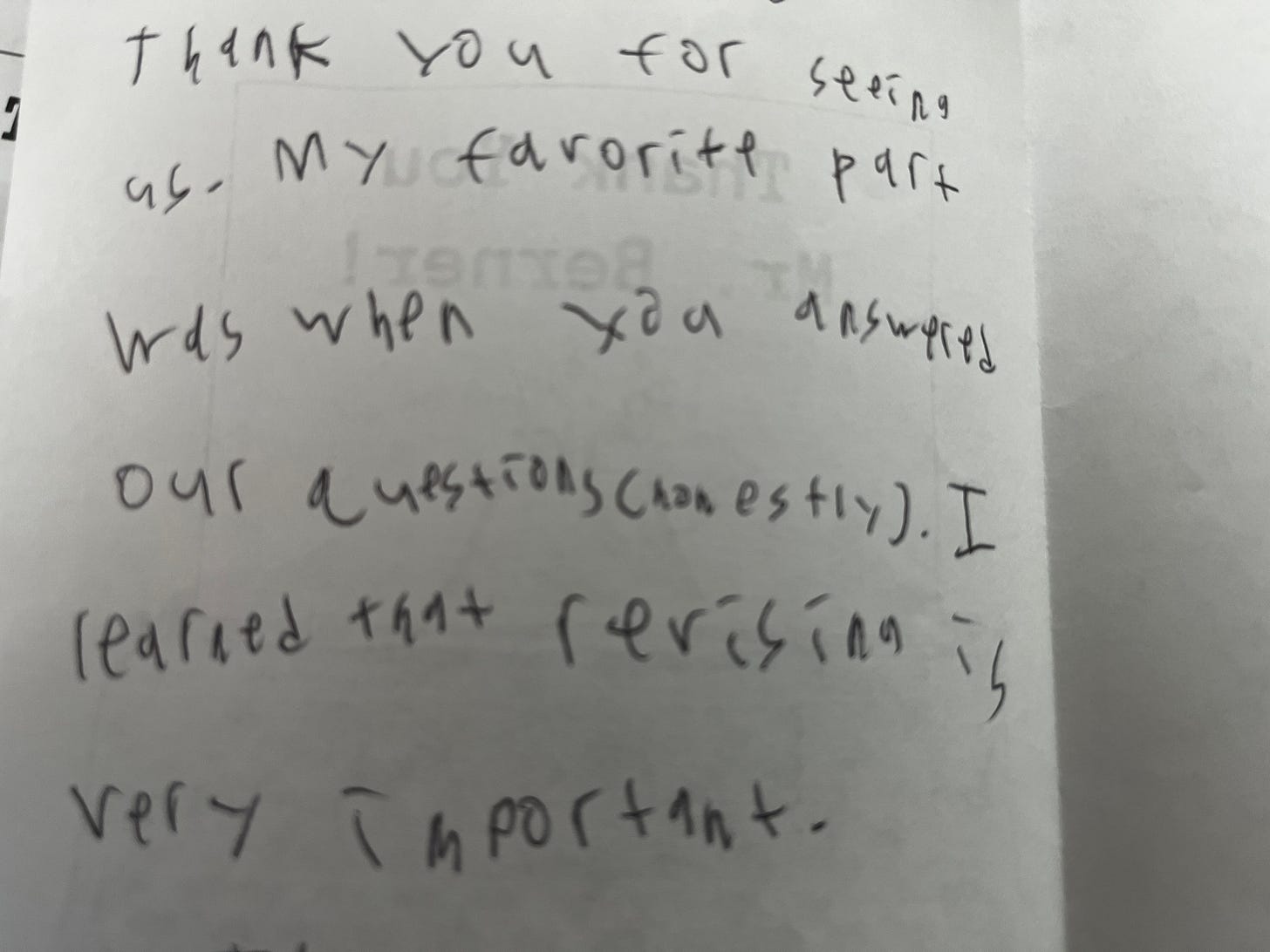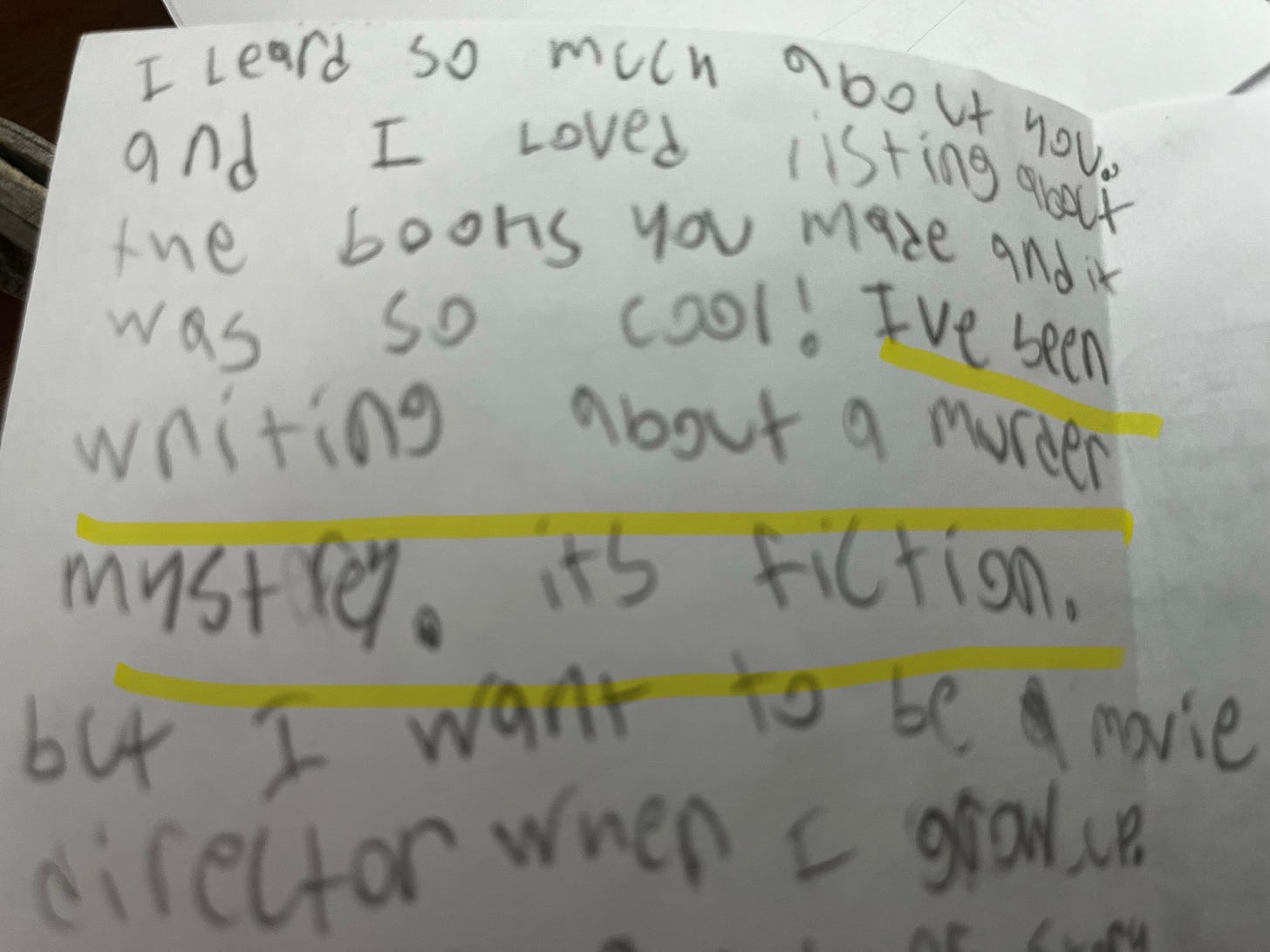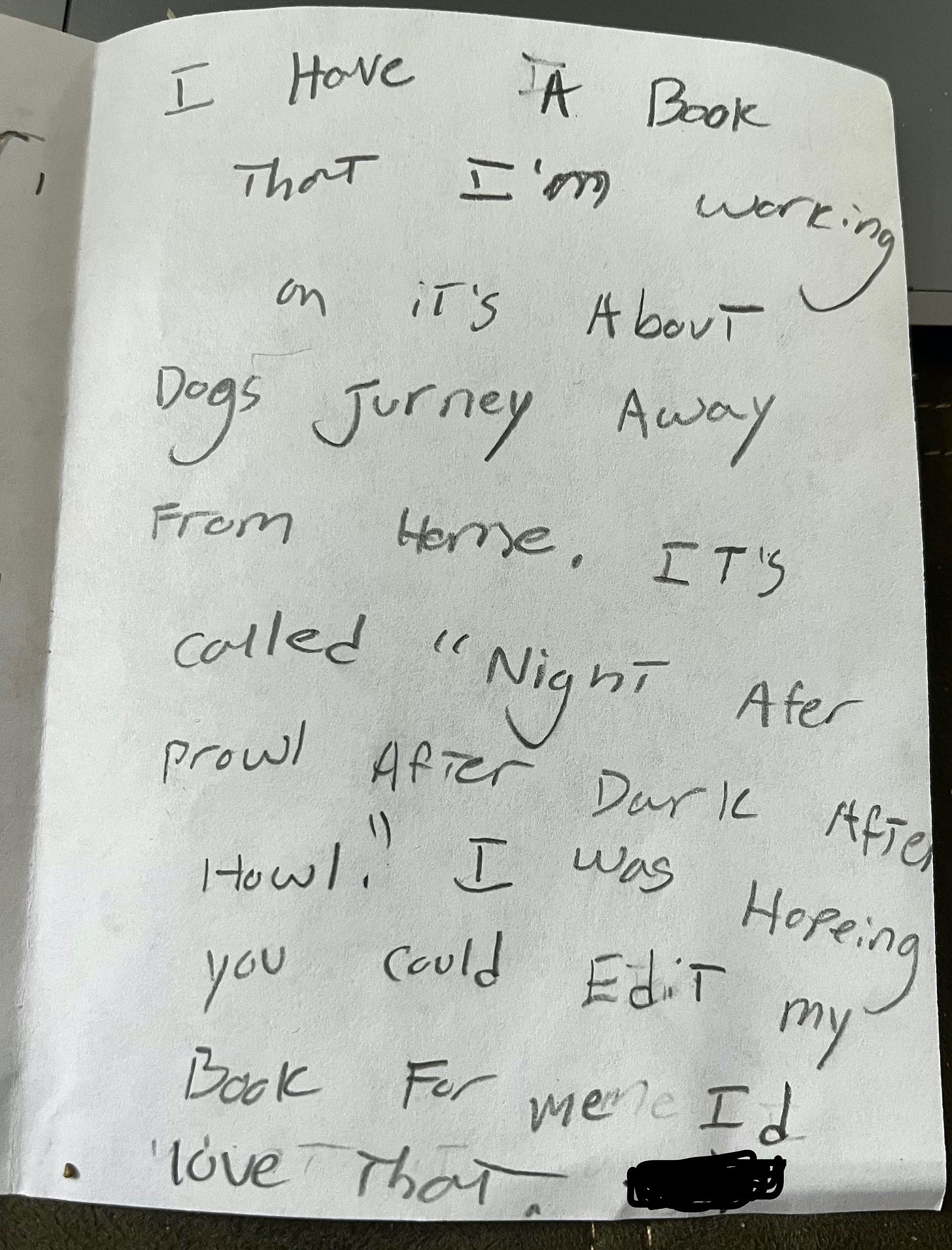The Joy of the Young Storyteller
Thoughts after speaking to fourth graders about being an author
When the Zoom call began, there were four views on my screen, each showing the students in the school’s individual fourth grade classrooms. Some students began to wave when they saw me on the big screen. I had positioned the laptop’s camera while sitting at the desk in my writing shed so that it would not pick up the drawing of Albert Camus on the wall behind me. He’s smoking a cigarette. Probably not the best impression for fourth graders. Plus, this bunch—I was told—was quite perceptive and one of them would undoubtedly see it and ask, “Why is that man smoking back there?”
I’ve spoken to numerous classes in the past. High schoolers, undergrads, and once I read to a 2nd grade class where a very precocious young student had asked, “Have you ever trespassed?” The question had nothing at all to do with the story I was reading, or anything I had been speaking about. It was random. Very random. And yes, I probably have trespassed at one time or another, but you don’t tell a 2nd-grader that you have a criminal past. So, I lied. “Nope. Not me.”
The fourth graders were learning about the disciplines of storytelling. Their lessons centered around cause and effect, on chronological narratives, and especially drafting. Rewriting was something that apparently was a struggle. They all thought their first drafts were masterpieces. (Don’t we all?) So, I was alerted to this before the Zoom call so that I would be prepared to stress that revising was a good thing, a necessary thing.
I opened with how I became an author, and how writing was in my blood from a very young age, even younger than they were. I spoke of how writing should be fun and rewarding, and how humans have been telling each other stories for centuries. It’s part of us, I said, and that each one of them can be a storyteller and that they all had a story to tell.
Some students squirmed in their chairs. Others peered into the camera as if they were told they must pay attention.
Then came the questions.
“How many books have you written?”
“How long does it take to write a book?”
“How do you find your ideas?”
All good questions. I had answers.
Eleven.
Sometimes it takes more than a year. .
Ideas are all around you. Pay attention. Be aware. It’s a writer’s biggest job.
Then a question about revising.
“How many times have you had to rewrite your stories?”
I hesitated for a moment, wondering if my truthful answer would destroy the positive vibe I had built. I decided just to go for it.
“Well, one book, if I remember correctly, had more than thirty-five rewrites.”
Silence.
I tried to recover the room.
“Well, you know, it’s a good thing to to revise. It’s a necessity to make it the best it can be.”
Had I lost them? Knowing there was all this work to be a writer, thirty-five more revisions than of any of them would ever want to take on. This had surely turned any budding writer away from the crazy idea of being an author. A shortstop for the Cubs sounded better. Even a career as a scientist sounded easier. A writer? Dozens of revisions? That’s no fun.
The Zoom call ended with cheers and waves, and I felt good about it. The teachers appeared pleased. But that “revising” thing? Hmm. Maybe that was a bit heavy-handed on my part? Did I scare them off?
Days passed. Then one afternoon in the mail, I received a package. The return address was the school’s, and inside, dozens of thank you notes from the students. Sure, some were certainly prompted by the teachers, but not entirely. There were several notes that appeared to prove that maybe I had made some small impact. And my concerns about being too honest about revisions? Well, that answer was there, too.
“Thank you for showing your books to us. Now I want to be a writer.”
“I think that maybe I’ll be an author.”
“You are so cool!”
“I really liked you telling us about how to be a writer.”
“What I learned from you was that you have to improve your writing . . . a lot.”
Ah, there it is. Rewriting.
“I liked when you talked about how revising is so good.”
Bingo. They got it.
The notes were precious. Some were decorated with colors and hearts. One was particularly amusing, although I’m sure the student wasn’t trying to be.
Here’s the note:
Fiction! Thank goodness.
I read them all and smiled throughout.
And one of the last notes was from a girl who apparently had taken to heart how revising was a good process, but also had her own plan for how to remedy what must have appeared to her to be an arduous task.
So much for revising. But hey, everyone needs an editor.
David W. Berner is the author of several award-winning books of memoir and fiction. He also teaches memoir and fiction at Gotham Writers.








I laughed out loud when I saw the my own published draft typo in this piece. (How ironic, right?) It's fixed now. But it was those fourth graders who cheered me on. :)
Just delightful. You were a great teacher to these fourth graders. Their minds are like sponges when they sense a person truly cares about them. You showed them how to make their writing even better. I liked that you saved their notes to you.